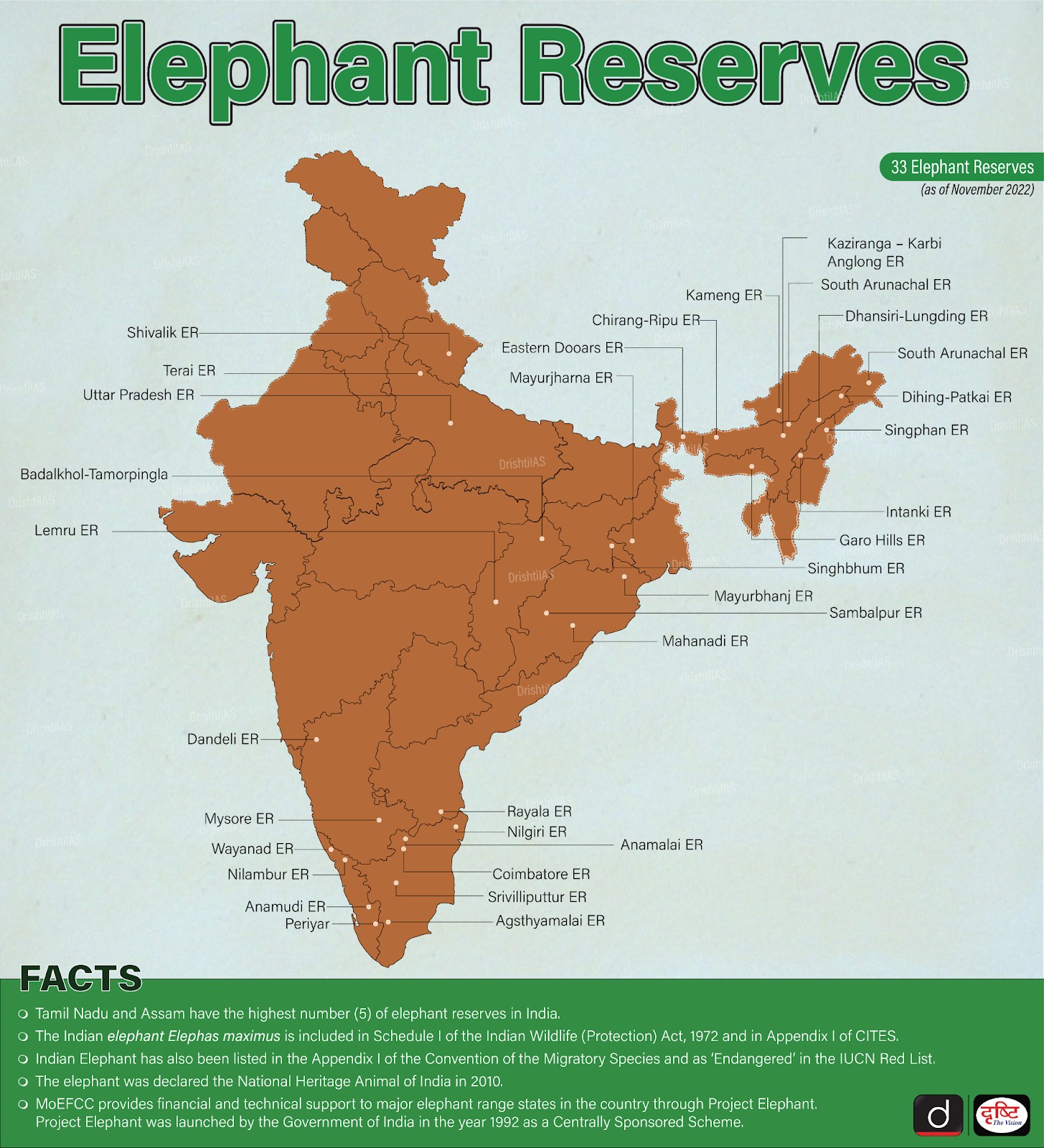Landscape Ecology in Elephant Corridors | 09 Apr 2024
Why in News?
Recently, landscape ecology has become crucial for identifying and restoring elephant corridors effectively, rather than relying solely on expert field knowledge.
- Landscape ecology is the study of the interactions between the temporal (time-related) and spatial (space-related) aspects of a landscape and the organisms within it.
- Landscape ecology became more accurate with the advancements in detecting core areas and corridors are now based on three factors: intensive use of field data; improvement in GIS (Geographic Information Systems) and availability of geospatial data and adapted algorithm.
What are Elephant Corridors?
- About:
- Elephant corridors are strips of land that enable elephant movement between two or more friendly habitats.
- Status of Elephant Corridors in India:
- The key findings of the Elephant Corridors of India, 2023 Report are as follows:
- The report highlighted a surge of 62 new corridors, marking a 40% increase since 2010, now totalling 150 corridors across the nation.
- West Bengal has the highest number of elephant corridors, totalling 26, constituting 17% of the total corridors.
- The East central region contributes 35% (52 corridors), and the North East region follows as the second-largest with 32% (48 corridors).
- Southern India registered 32 elephant corridors, representing 21% of the total, while northern India has the lowest count of 18 corridors, amounting to 12%.
- Elephants have expanded their ranges in the Vidarbha region of Maharashtra and southern Maharashtra bordering Karnataka.
- The key findings of the Elephant Corridors of India, 2023 Report are as follows:
Elephants
- Elephants in India:
- Elephants are keystone species as well as the Natural Heritage Animal of India.
- India has the largest number of wild Asian Elephants. The elephant population in the country is estimated to be over 30,000.
- Karnataka has the highest elephant population in India.
- Conservation Status:
- Convention of the Migratory Species (CMS): Appendix I
- Wildlife (Protection) Act, 1972: Schedule I
- International Union for Conservation of Nature (IUCN) Red List of threatened species:
- Asian Elephant: Endangered
- African Forest Elephant: Critically Endangered
- African Savanna Elephant: Endangered
- Conservative Efforts:
UPSC Civil Services Examination Previous Year Question (PYQ)
Prelims:
Q. With reference to Indian elephants, consider the following statements: (2020)
- The leader of an elephant group is a female.
- The maximum gestation period can be 22 months.
- An elephant can normally go on calving till the age of 40 years only.
- Among the States in India, the highest elephant population is in Kerala.
Which of the statements given above is/are correct?
(a) 1 and 2 only
(b) 2 and 4 only
(c) 3 only
(d) 1, 3 and 4 only
Ans: (a)


